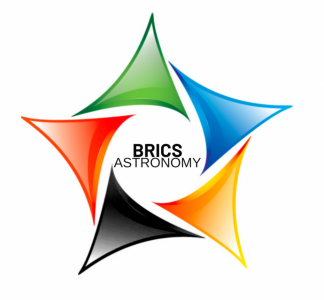The BRICS Astronomy Program, SAAO, and the Johannesburg City Parks and Zoo, in partnership with Eskom Expo for Young Scientists, invite learners to participate in the inaugural Earth and Beyond Science Fair. This initiative seeks to uncover the most innovative young minds among school learners. By combining expertise in astronomy, space sciences, and environmental sciences, students are encouraged to explore their surroundings and inquire about what lies beyond our atmosphere into outer space. This initiative fosters a science-based understanding of where we come from while inspiring scientific exploration.
The Astro Fair is a platform for learners to showcase their research and findings, fostering a community dedicated to deeper astronomy, space sciences, and environmental understanding. Learners will be challenged to identify and address community challenges using scientific investigation or engineering methodologies to develop solutions that promote a sustainable and innovative future while enhancing our understanding of planetary stewardship.”
The Earth and Beyond Astro Fair will also serve as a qualifying event for learners to participate in the Expo for Young Scientists Johannesburg Regional Science Fair. Winning projects from this regional fair will advance to the annual Expo for Young Scientists International Science Fair (ISF), where learners will compete against the best young scientists from across the country and the world.
Objective: To encourage learners to design projects within the themes of astronomy, science, and environmental sciences, fostering scientific curiosity and engagement.
Project Themes
Astronomy:
- Investigating the Impact of Solar Storms on Earth’s Communication Systems
- Modeling Exoplanet Detection Using the Transit Method
- Creative Approaches to Managing Space Debris
- Building a DIY Radio Telescope
- Constructing a Scaled Model of the Solar System
- Star types: Stellar classification & evolution (OBAFGKM, HR diagrams etc) (and also maybe where the sun fits in)
- The lives of different stars (stellar evolution & death)
- Use of astronomical data/techniques/equipment (satellite imaging etc) in ecological studies
- Ancient astronomy/astronomers (and their work that is still fundamental to modern astronomy, their lasting impact)
- The effects of climate change and pollution on astronomy (importance of “green living”)
- Impact of astronomy on major/mainstream culture throughout history
- Importance of including cultural histories and mythologies of astronomy in its teaching
- Rise in popularity of astronomy and space science on encouraging STEM studies in newer generations (growth in STEM education and career paths)
- Impact of astronomy infrastructure on the communities it is constructed in
- Ideas on reducing the amount of waste produced by space mission planning (i.e. ways to reduce the material waste of testing and research phases before a mission)
Plant Science:
- Aquatic Science
- Botany
- Plant Genetics
- Plant Pathology
- Plant Physiology
Earth Science:
- Atmospheric Science
- Climate Science
- Geography
- Limnology
- Oceanography
- Soil Science
- Water Science
Animal Science:
- Animal Behaviour
- Animal Genetics
- Animal Physiology
- Aquatic Animals
- Entomolgy
- Wildlife Management
- Zoology
Environmental Studies:
- Biological Control
- Biioremediation
- Ecology
- Environmental Management
- Sustainabilty
- Sustainable Development
How to Apply
Kindly send an email to moliehim@gmail.com and cc duduzile@saao.ac.za. In your email, kindly state which school you are from and the grades you wish to enroll in the Fair.
For more information, visit: https://www.jhbcityparksandzoo.com/services-facilities/ecological-services/environment-education-awareness
-
Mission of the BRICS Astronomy Working Group
-
The mission of the BRICS Astronomy Working Group is to promote cooperation between BRICS member countries in the field of astronomy and enabling technologies through joint activities of government, universities, research institutions, and industry, as relevant, to develop astronomical sciences, generate new knowledge, train human capital, develop new technologies and applications, and improve public understanding of science.
